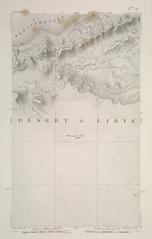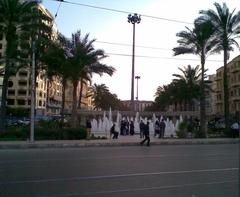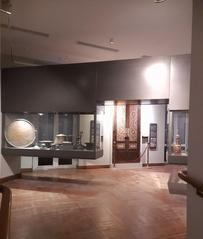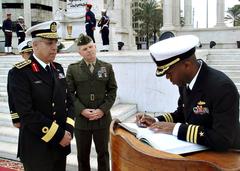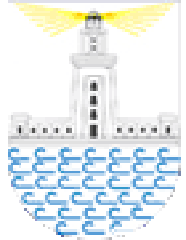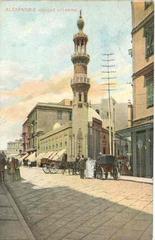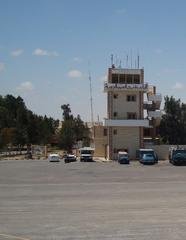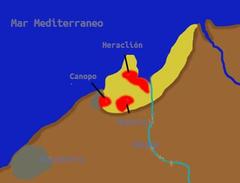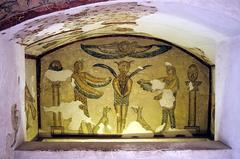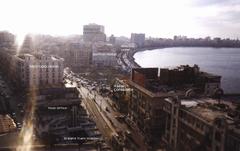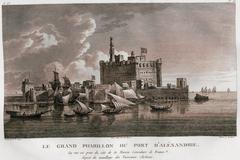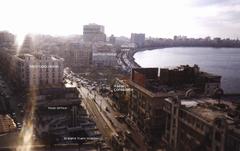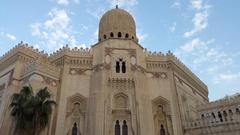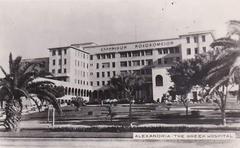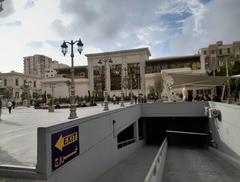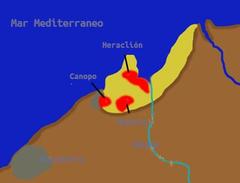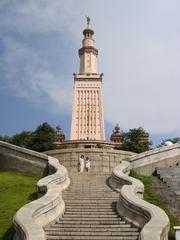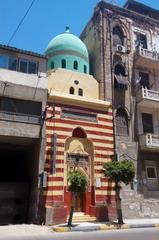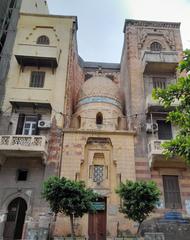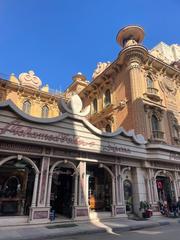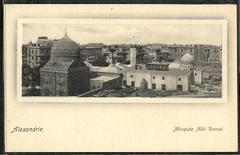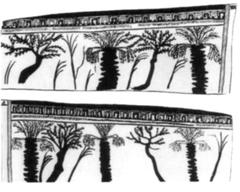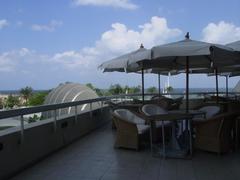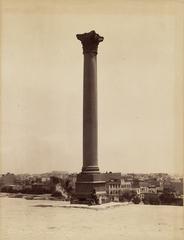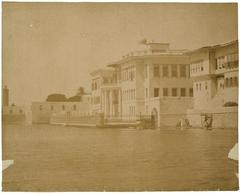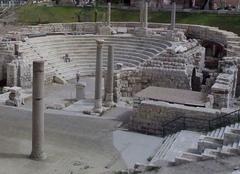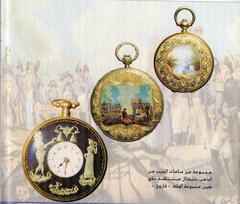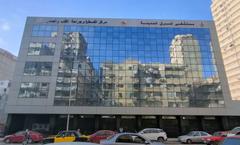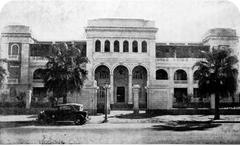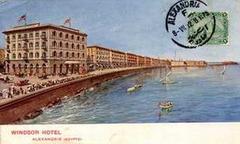Alexandria Armed Forces Medical Complex Visiting Hours, Tickets, and Guide to Alexandria Historical Sites
Date: 14/06/2025
Introduction
Situated in the historic city of Alexandria, Egypt, the Alexandria Armed Forces Medical Complex is a leading institution in military healthcare and medical research for both military personnel and civilians. With a legacy tracing back to the 19th century, the complex is not only renowned for its advanced medical services but also for its architectural heritage and proximity to Alexandria’s iconic landmarks. This article provides an in-depth guide on the complex’s history, visitor protocols, accessibility, and tips for exploring nearby attractions, ensuring you have all the essential information for a well-informed and enriching visit.
For official updates, consult the complex’s website and Alexandria tourism resources (Alexandria Armed Forces Medical Complex Overview, Alexandria Tourism).
Table of Contents
- Overview and Historical Significance
- Evolution and Modernization
- Military and Civilian Healthcare Integration
- Visiting the Alexandria Armed Forces Medical Complex
- Alexandria Citadel: A Highlighted Historical Site
- Safety, Health, and Practical Considerations
- Frequently Asked Questions (FAQ)
- Key Visitor Information Table
- References
Overview and Historical Significance
The Alexandria Armed Forces Medical Complex reflects Egypt’s long-standing tradition of military medicine, dating back to reforms initiated by Muhammad Ali Pasha in the early 1800s. Initially established to support a modernized army and navy, Alexandria’s military hospitals evolved through pivotal moments in Egyptian and regional history, including both World Wars, the Suez Crisis, and the Arab-Israeli conflicts.
Today, the complex stands as one of the Mediterranean’s largest military medical facilities, serving as a central hub for advanced healthcare, medical training, and research. Its architectural evolution mirrors Egypt’s broader efforts to modernize its military and public health infrastructure.
Evolution and Modernization
Major expansions in the late 20th century transformed the complex into a modern medical city, introducing specialized departments, intensive care units, and cutting-edge medical technologies. The design now emphasizes patient comfort, infection control, and operational efficiency. The complex is also a venue for prominent medical conferences and serves as a model for military healthcare facilities in the region.
Military and Civilian Healthcare Integration
While primarily serving military personnel and their families, the complex collaborates with civilian hospitals, universities, and research centers. It is a training ground for medical professionals who contribute to Egypt’s civilian health sector and international peacekeeping missions. The complex also plays a strategic role during national emergencies, such as the 2011 revolution and the COVID-19 pandemic, providing trauma care, vaccination support, and specialized services to both military and civilian populations.
Visiting the Alexandria Armed Forces Medical Complex
Visiting Hours & Access
- General Access: Restricted due to military status. Authorized visitors include military personnel, their families, and civilians with medical appointments or referrals.
- Visiting Hours: Typically from 8:00 AM to 8:00 PM, but visits must be arranged in advance. Walk-ins are generally not permitted except in emergencies.
- Appointment Booking: Contact the complex’s administration or public relations office for appointments. Foreign nationals should coordinate with their embassy if necessary.
Ticketing & Tours
- Entry Fees: None. The complex is not a tourist attraction, so there are no public tickets.
- Educational Visits: Tours of designated areas and medical history exhibits can be arranged by appointment, usually for educational or professional groups.
Accessibility & Amenities
- Location: Located in the Mustafa Kamel district, about 15 minutes from Alexandria’s city center.
- Accessibility: The facility is wheelchair accessible and offers amenities such as on-site parking, coffee shops, waiting lounges, and multilingual information desks.
- Visitor Facilities: Assistance for people with disabilities, comfortable waiting areas, and landscaped grounds for relaxation.
Travel Tips
- Security Protocols: Prepare for security checks, ID verification, and possible restrictions on mobile phone and camera use.
- Dress Code: Conservative attire is required; shoulders and knees should be covered.
- Language: Arabic is the official language, but English is widely spoken among medical staff.
Nearby Attractions
While visiting the complex, explore Alexandria’s renowned sites:
- Bibliotheca Alexandrina: A modern library and cultural center.
- Citadel of Qaitbay: A 15th-century fortress with panoramic Mediterranean views.
- Alexandria National Museum: Artifacts and exhibits spanning Egyptian history.
- Montaza Palace and Gardens: Seaside royal estate with beautiful gardens.
- Corniche: The city’s scenic waterfront promenade.
Alexandria Citadel: A Highlighted Historical Site
Overview
The Citadel of Qaitbay is one of Alexandria’s most iconic landmarks. Built in 1477 by Sultan Al-Ashraf Sayf al-Din Qa’it Bay on the site of the ancient Lighthouse of Alexandria, it exemplifies medieval military architecture and is a symbol of the city’s resilience.
Visitor Information
- Hours: Daily, 9:00 AM to 5:00 PM.
- Tickets: Modest entrance fees; discounts for students, seniors, and groups. Purchase at the gate or online (Alexandria Tourism - Qaitbay Citadel).
- Tours: Multilingual guided tours offer historical insights.
- Facilities: Souvenir shop, café, restrooms, and shaded seating.
- Accessibility: Ramps at main entrances; some areas may be challenging for those with limited mobility.
- Travel Tips: Visit early or late for fewer crowds and cooler temperatures. Wear comfortable shoes and bring a camera for panoramic views.
Events & Visuals
The citadel hosts cultural festivals, art exhibitions, and reenactments. High-quality images and virtual tours are available on official tourism websites.
Safety, Health, and Practical Considerations
Security
- Complex: High security due to military status. Comply with all protocols and staff instructions.
- Alexandria: Generally safe, but remain vigilant against petty crime in crowded areas.
Health
- Vaccinations: Ensure routine vaccinations are up-to-date, including Hepatitis A and B, Typhoid, and Tetanus.
- COVID-19: Proof of vaccination or a negative test (within 72 hours) required for entry to Egypt. Masks are mandatory in indoor public spaces.
- Water & Food: Drink only bottled or filtered water and consume freshly prepared food.
Accessibility
- Transportation: Taxis are the most convenient way to reach the complex. Public buses and trams are available but less direct.
- Disability Accommodations: Contact the facility in advance to confirm accessibility features.
Payment & Insurance
- Payment: Credit cards accepted for medical services; carry some cash for incidental expenses.
- Insurance: Comprehensive travel insurance is strongly recommended.
Conduct
- Dress Code: Modest, conservative clothing is required.
- Behavior: Respect local customs. Photography is prohibited within military zones and the complex.
Frequently Asked Questions (FAQ)
Q: What are the visiting hours of the Alexandria Armed Forces Medical Complex?
A: Visiting hours are generally 8:00 AM to 8:00 PM, by appointment only.
Q: Can tourists visit the complex?
A: No. Entry is restricted to authorized visitors with medical appointments or official arrangements.
Q: Are tickets required for entry?
A: No, the complex does not issue tickets; it is not a tourist site.
Q: What documents are needed for entry?
A: Valid ID or passport, appointment confirmation, and for foreigners, visa copies.
Q: Is English spoken?
A: Yes, many medical professionals speak English.
Q: What attractions are near the complex?
A: Bibliotheca Alexandrina, Citadel of Qaitbay, Alexandria National Museum, Montaza Palace.
Key Visitor Information Table
| Aspect | Details |
|---|---|
| Entry | Valid ID/passport, appointment required, security screening |
| Visiting Hours | 8:00 AM – 8:00 PM, by appointment only |
| Safety | High security, comply with protocols |
| Health | Up-to-date vaccinations, travel insurance, bottled water recommended |
| COVID-19 | Proof of vaccination/negative test, masks indoors |
| Payment | Credit cards accepted; carry cash for incidentals |
| Transportation | Taxis preferred; public transit available |
| Accessibility | Facilities available; confirm in advance for special needs |
| Dress Code | Conservative attire; no photography |
| Language | Arabic official; English widely spoken among staff |
| Emergency Contacts | Police: 122, Ambulance: 123 |
References
- Alexandria Armed Forces Medical Complex Overview
- Alexandria Tourism
- Visitor Information, Safety, and Practical Considerations at the Alexandria Armed Forces Medical Complex
- Alexandria Tourism - Qaitbay Citadel
Final Tips and Call to Action
The Alexandria Armed Forces Medical Complex epitomizes Egypt’s commitment to military medicine and public health. While access is regulated, those with authorization will find a blend of historical significance, advanced healthcare, and proximity to Alexandria’s most treasured sites. For the most current information, always consult official channels and consider using digital tools like the Audiala app for real-time updates, visitor support, and curated guides.
Download the Audiala app for the latest on Alexandria’s medical facilities and historical attractions. Follow us on social media and explore our posts to enhance your Alexandria experience.
